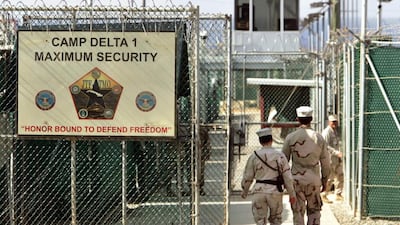Veteran foreign affairs correspondent and lecturer Mark Danner was a dogged and eloquent voice against the United States invasions of Afghanistan in 2001 and Iraq in 2003; he's been an outspoken critic of the dangers of American exceptionalism in the 21st century; and his slim new book, Spiral: Trapped in the Forever War, is an eloquent continuation of that excoriation.
His contentions are stark and familiar. The story begins, of course, with the September 11, 2001 attacks on the World Trade Center and the Pentagon and the United States’ enraged response to those attacks. The keystone of which was a block of legislation called the Authorization for Use of Military Force, which president George W Bush signed into law only days after September 11, 2001 and has been in place – and creepingly amended and expanded – ever since.
The AUMF was originally targeted against governments and affiliated groups directly connected with the 9/11 attacks and is now used to justify actions against splinter groups and organisations that didn’t even exist at the time of those attacks. Indeed, as Danner and others have pointed out with increased fervency in recent years, that aggression has helped to create a breeding ground for such splinter groups.
Danner describes that ongoing use of military force as a downward spiral from which the US shows no signs of escaping. He writes powerfully from the perspective of an American who feels both angry and betrayed. “The legal and political consequences of this open-ended war on terror still imprison us,” Danner says, “from the president on down, in a network of poisonous paradoxes...”
Those paradoxes centre on what the author refers to, echoing president Barack Obama, as “a permanent wartime footing” in which a state of exception becomes normalised and emergency becomes the new normal. Methods begun by president Bush in the wake of the 9/11 attacks have been simultaneously repudiated and expanded by president Obama.
Rather than ending them, the Obama administration has normalised them; instead of basing its actions on clandestine exercise of presidential authority, as Bush so often did, Obama’s administration and its operatives in the intelligence communities have sought ways to ground its actions on a sketchy flooring of law, or to expand innocent existing laws to accommodate envisioned abuses.
Danner makes it clear he sees these things as equally culpable; it’s possible that future generations will consider president Obama’s to be the greater crime.
The whole world knows the checklist of those improvisations – it reads like a bill of indictment against the US: warrantless wiretapping; torture and extradition for torture; unending detentions in places like Guantanamo and Abu Ghraib; targeted killings by unmanned drones; and so on; all of it illegal under both US and international law (not least the United Nations’ Convention Against Torture).
“It is one of the regrettable consequences of the war on terror,” Danner writes with deeply ironic self-control, “that so many Americans are now convinced that the country cannot be adequately protected without breaking the law.”
Americans have now learned to live in relative equanimity with a whole host of once-unthinkable things ostensibly carried out in their name; a “de facto strategy of aggregation” that was born on 9/11 and moved into high gear after the invasion of Iraq, and Danner sees very little prospect for hope.
As he points out, if the US’ 14-year war has had one pronounced effect, it has been to make the country less safe from the very forces it sought to combat.
In the years since September 11, worldwide deaths from terrorism have risen a staggering 4,000 per cent and the radical groups causing those deaths have used the US’ open-ended presence in Iraq and Afghanistan (and the omnipresent threat of US drones striking out of a clear blue sky) as a priceless recruitment tool to swell their own ranks. This is the normalised state of exception president Obama inherited nearly eight years ago and has done virtually nothing to dismantle, all the while urging the American people to reject it.
One such urging came in a 2007 speech that seems to resonate particularly with Danner, a speech in which Obama ringingly declared that the abuses of his predecessor had to end: “That means no more illegal wiretapping of American citizens... No more ignoring the law when it is inconvenient. That is not who we are.”
At its heart, Spiral is a bald, unsparing assessment of who Americans are when they can be so complacent in the face of so many ongoing iniquities.
Steve Donoghue is managing editor of Open Letters Monthly and a regular contributor to The Review.

